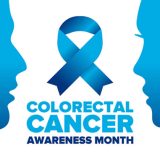

The human digestive tract contains billions of bacteria and other microorganisms. Living among the gut flora are probiotics. Known as beneficial bacteria, probiotics help maintain balance in the gut by reducing the growth of harmful bacteria. Found in certain foods and dietary supplements, probiotics are traditionally used to restore digestive health after taking antibiotics or to help someone having stomach or intestine issues. However, the practical applications for supplementing with probiotics are growing. Likely due to the close relationship between the digestive and immune systems, medical researchers have demonstrated that probiotics may help people with chronic fatigue syndrome.
Digestion and Immunity
A majority of alternative healthcare practitioners and a growing proportion of western medical doctors recognize the close connection between the digestive and immune systems. Because poor digestion leaves the body and the immune system in the same predicament that poor nutrition does, the relationship between these two systems is hard to ignore. Regardless of the cause, a lack of nutritional factors affects the body’s ability to protect itself and function properly. This common cause of illness is the result of a poorly functioning digestive system’s inability to transform consumed food into a form the body can use. Additionally, some experts believe that an inadequate digestive system will steal enzymes from the immune system, thus weakening immune function.
More About Probiotics
There are over 400 species of probiotic microorganisms in the human digestive tract, including the best known strains:
- Lactobacillus
- Bifidobacterium
Many factors can contribute to an imbalance of colon microorganisms, such as:
- inadequate dietary fiber
- antibiotic therapy
- ingestion of environmental toxins
Because a probiotic insufficiency can easily allow harmful bacteria and yeast to flourish, imbalances typically invite problems like infectious diarrhea and vaginal yeast infections.
Once ingested, probiotics colonize the intestines and other parts of the body and can sustain themselves unless they are destroyed by antibiotics or other factors.
Finding Probiotics
While the number of live organisms varies greatly between food products due to differences in processing methods, probiotics may be found in the following foods:
- cultured dairy products such as yogurt or kefir
- fermented foods such as sauerkraut
- specially formulated probiotic drinks
Probiotics can be also be found as a dietary supplement in capsule, liquid, powder or tablet form. Occasionally, probiotics are one ingredient in a larger formula, such as NT Factor®, which assists in cellular restoration. Since probiotic bacteria are already part of the normal digestive system, they are generally considered safe. However, some sources suggest consulting with a physician if you are taking immunosuppressant drugs or are immune compromised.
About Chronic Fatigue Syndrome
Chronic Fatigue Syndrome (CFS) is a complex illness affecting approximately one to four million Americans. Defined as having severe fatigue of six months or more without any other medical reason, CFS is also accompanied by four or more of the following:
- substantial impairment in short-term memory or concentration
- sore throat
- tender lymph nodes
- muscle pain
- multi-joint pain without swelling or redness
- headaches of a new type, pattern or severity
- un-refreshing sleep
- post-exertional malaise lasting more than 24 hours
Although not part of the official CFS definition, sufferers frequently report depression and anxiety. The cause of Chronic Fatigue Syndrome remains unclear; however, there is evidence of dysfunctions in the digestive, nervous, hormonal and immune systems of those affected.
Research on CFS
Because research shows that people with Chronic Fatigue Syndrome have imbalances in their intestinal microorganisms, a Canadian study published in a March 2009 edition of Gut Pathogen examined how supplementing with probiotics affected participants with CFS. The researchers found that those taking 24 billion colony forming units of Lactobacillus casei strain Shirota for two months had a significant decrease in anxiety symptoms than the control group. Such findings support evidence of a gut-brain connection; whereby improving digestive health could have many untold rewards.
Given the interconnectedness of the digestive, immune and central nervous systems, Dr. Birgitta Evengard of the Karolinska Institute in Stockholm examined if probiotics might help patients with CFS. Thus, Swedish researchers observed the effects of eating a probiotic-packed yogurt twice a day on CFS patients. Although this was a small study, a majority of the participants reported improvements in either their physical health, emotional health or both.
Because there are so many combined factors partaking in a CFS diagnosis, most experts agree that each person must be evaluated individually. However, if a person’s pattern of symptoms appears to incorporate aspects of emotional, digestive, hormonal, immune and nervous system health, supplementing with probiotics may help reduce the struggles typical of CFS.




